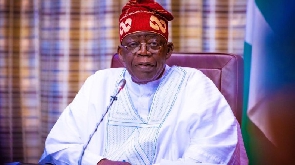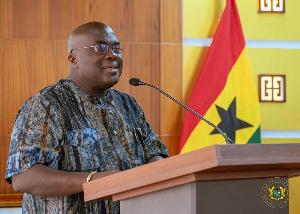Accra, Feb. 28, GNA - Civil Society groups have renewed their call on government not to sign the Economic Partnership Agreement (EPA) because of the inherent dangers that it poses to the country's future development. Ghana, on December 13 last year initialled an interim Economic Partnership Agreements (EPA) or EPA-lite with the European Commission, despite opposition from pressure groups such as the labour movement and civil society organizations.
The agreement will provisionally allow 80 per cent of some European goods into the Ghanaian market duty-free and quota-free while Ghana will continue to have a near 100 percent access to the EU market. However, at a meeting with the Parliamentary Select Committees on Trade, Finance and Agriculture members of the Economic Justice Network reiterated the need for government not to be consumed by EU's promises of development aid for the revenue losses the country would suffer. Mr. Ibrahim Akalbila, Coordinator, Ghana Trades and Livelihood Coalition, who spoke on the concerns of civil society said by signing the agreement government, would lose its policy space of using tariffs as a development tool.
He said the influx of cheaper goods from companies in the EU would inevitably sign the doom of local industries, which were struggling from unreliable provision of utilities.
This will mean financial difficulties of most of the companies and loss of jobs.
Mr Akalbila said the loss of trade revenue through the free entry of goods would deny government money to carry out development activities.
Mr Gyekye Tanoh, Head of the Economic Unit of the Third Worls Network, said the EU's move was to integrate and get its hold on the sub-regional markets of the African Caribbean and Pacific Countries. He said by signing individual agreements with countries in the sub-region, the EU was undermining regional integration efforts. Mr Tanoh said even in the area of trade in goods, the EC included in the interim agreement demands, which had not been part of the EPA negotiations.
One such demand is for the government to forever eliminate the use of export taxes, which governments all over the developing world including Ghana, use when necessary to discourage the excessive export of locally produced materials in their raw form, so as to encourage value added processing and export.
Mr J. B. Danquah Adu, Chairperson of the Parliamentary Committee on Trade, Industry and Tourism, said it was important that Parliament and civil society worked together to ensure a better deal for the country. He said there was the need for governments in the sub-region to make the ECOWAS trade liberalization scheme work to enhance integration and improve regional trade.
Mr Adu said Ghana's interim agreement provided for the immediate abolition of tariffs on virtually all exports to Europe and for the gradual dismantling over 15 years of tariffs on 80 per cent of imports from the 27-member bloc.
The remaining 20 per cent of imports are deemed "sensitive products" which will be subject to tariffs even after the 15-year transition period to promote economic development, food security, employment and government revenue generation.
Business News of Thursday, 28 February 2008
Source: GNA












